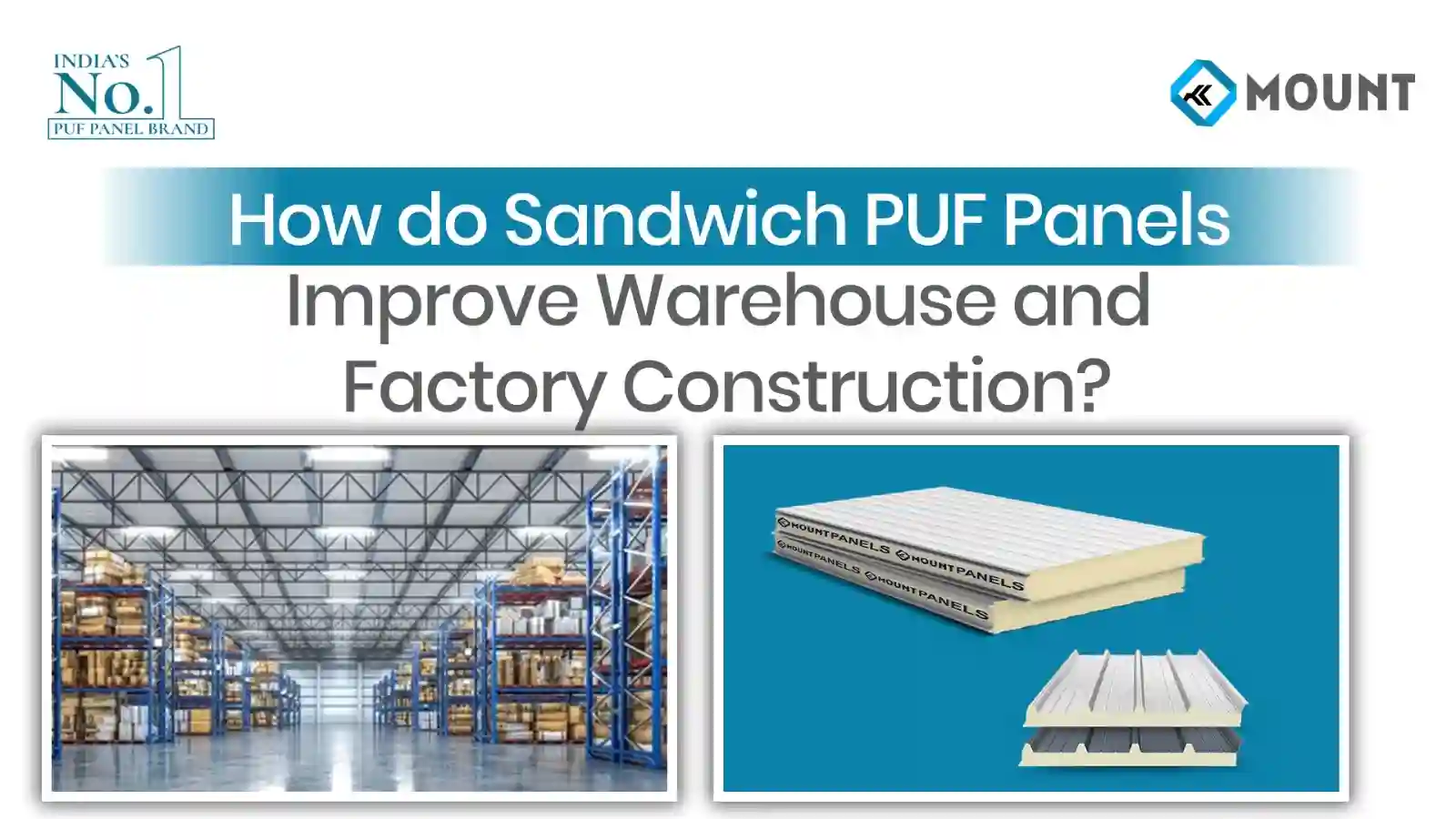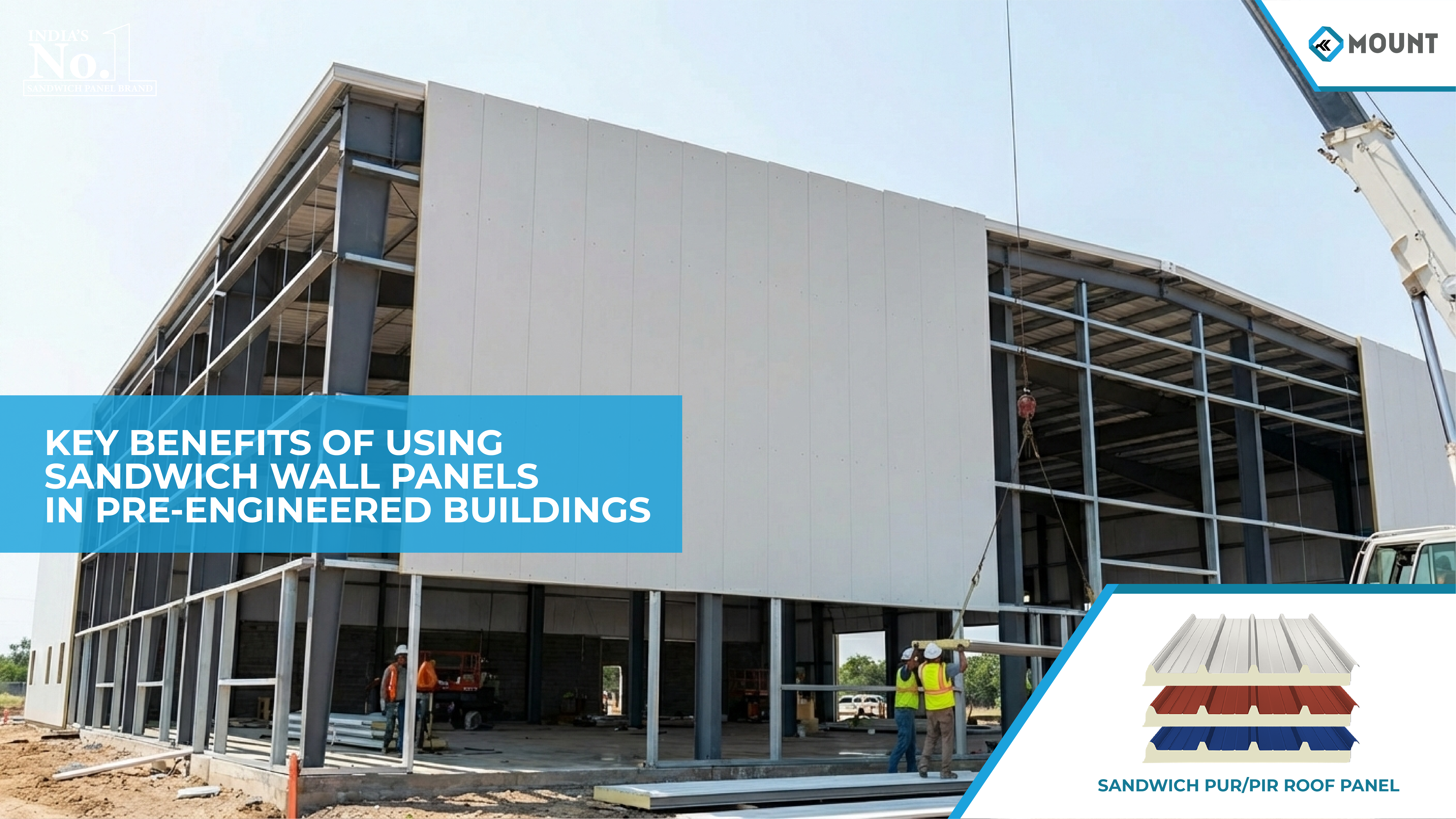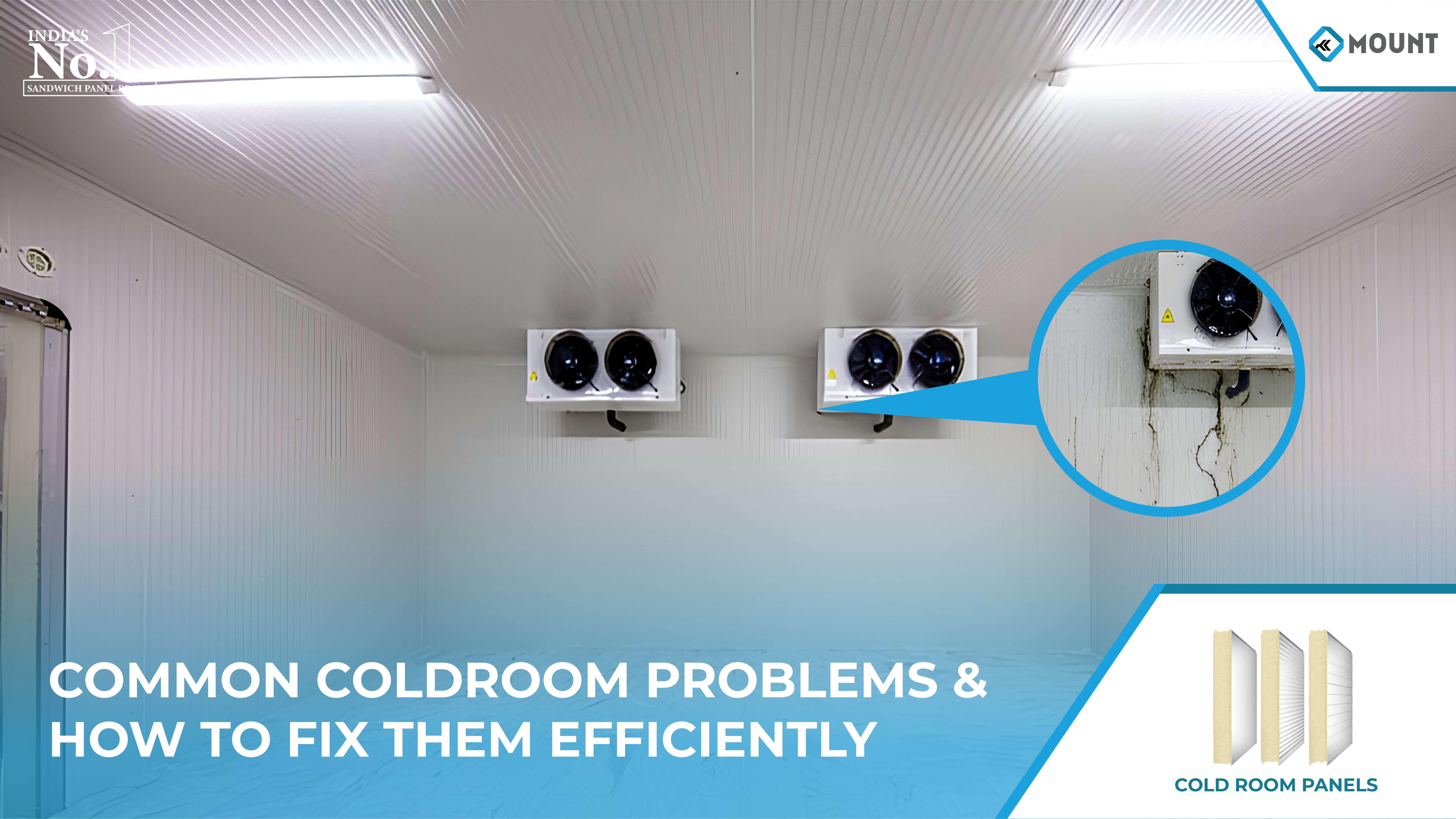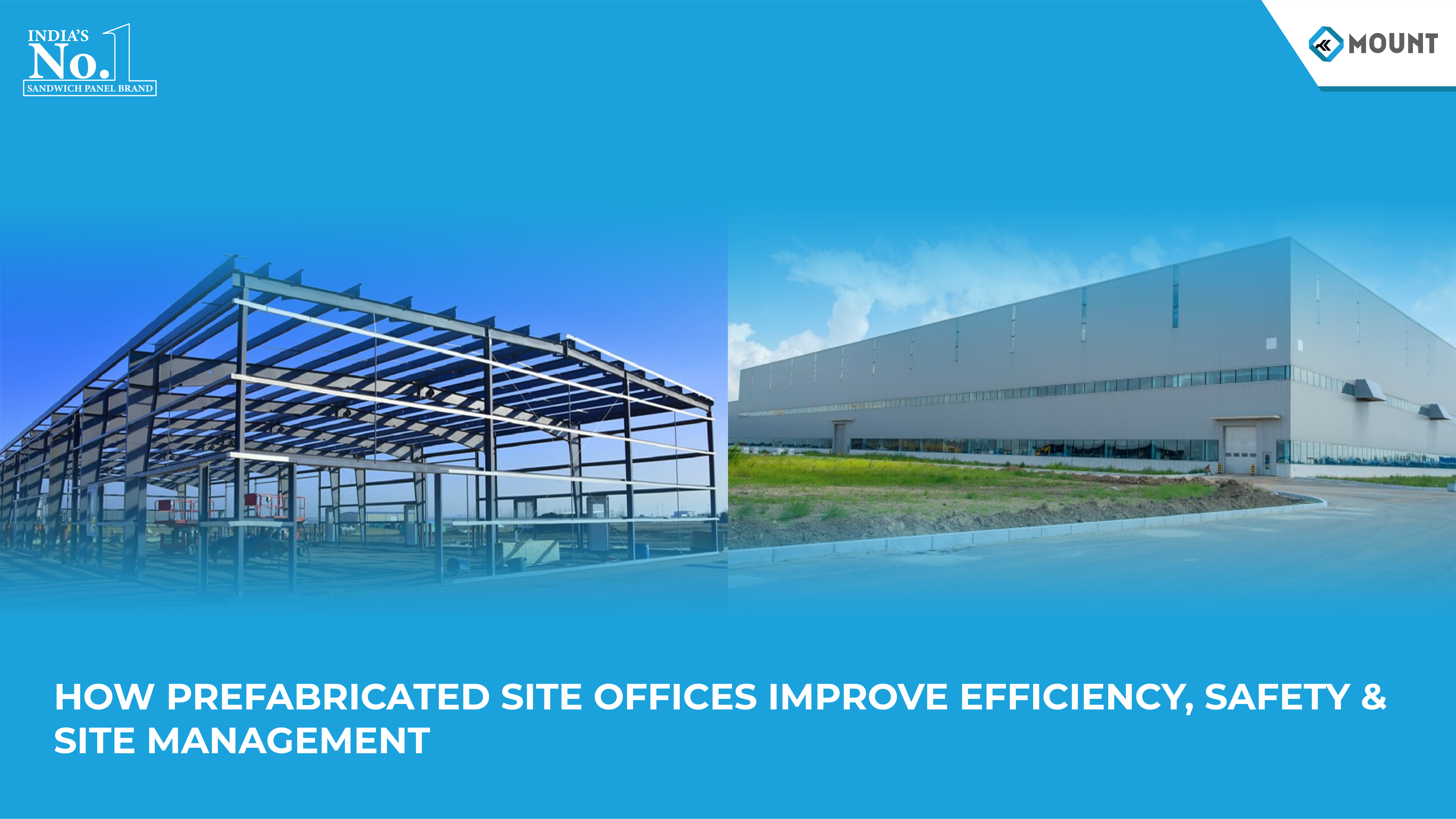
How do Sandwich PUF Panels Improve Warehouse and Factory Construction?
Modern industrial construction demands materials that combine efficiency, durability, and cost-effectiveness. PUF Panels have emerged as a game-changing solution for warehouse and factory construction, addressing the critical challenges of traditional building methods. These innovative panels offer superior thermal insulation, accelerate construction timelines, and provide exceptional structural integrity. As industries worldwide seek sustainable and rapid construction solutions, sandwich PUF panels are revolutionising how we build large-scale industrial facilities. Mount specialises in delivering high-quality polyurethane foam panels that meet the demanding requirements of contemporary industrial architecture, helping businesses reduce energy costs while maintaining robust structural performance.
What Are Sandwich PUF Panels?
PUF Sheets consist of three distinct layers: two metal facings with a polyurethane foam core sandwiched between them. The outer layers typically use galvanised steel, providing weather resistance and mechanical strength. The inner polyurethane foam core delivers outstanding insulation properties with thermal conductivity as low as 0.022 W/mK. This unique composition creates a lightweight yet incredibly strong building material that outperforms conventional construction alternatives. The manufacturing process involves continuous lamination, ensuring consistent quality and dimensional accuracy across every panel. Mount’s advanced production facilities maintain strict quality control standards, producing panels that meet international building codes and industry specifications.
Superior Thermal Insulation Benefits
One of the most significant advantages of PUF roofing systems is their exceptional thermal insulation capacity. The closed-cell structure of polyurethane foam prevents heat transfer, maintaining stable internal temperatures regardless of external conditions. Warehouses using these panels can reduce cooling and heating costs by up to 40% compared to traditional construction methods. The insulation performance remains consistent over decades, unlike conventional materials that degrade over time. This thermal efficiency becomes particularly crucial for temperature-sensitive storage facilities, pharmaceutical warehouses, and food processing plants. PUF wall panels create an effective thermal barrier that protects inventory, reduces energy consumption, and minimises carbon footprint. Mount’s insulated panels help businesses achieve green building certifications while significantly lowering operational expenses.
Accelerated Construction Timeline
Traditional warehouse construction can take months, but roofing PUF panels dramatically reduce project timelines. These pre-fabricated panels arrive ready for installation, eliminating lengthy on-site fabrication processes. A typical warehouse project that would require six months using conventional methods can be completed in just eight to ten weeks with sandwich panel systems. The lightweight nature allows smaller crews to handle installation, reducing labor costs substantially. Weather delays have become minimal since panels can be installed in various climatic conditions. The interlocking design ensures precise alignment and faster assembly without compromising structural integrity. Mount provides comprehensive installation support, ensuring your project stays on schedule and within budget while maintaining the highest construction standards.
Structural Strength and Durability
Despite their lightweight characteristics, PUF panel manufacturers engineer these materials to withstand substantial loads and environmental stresses. The sandwich construction creates a composite structure where the core and facings work together, providing excellent flexural strength. These panels resist wind loads, snow accumulation, and seismic forces effectively. The corrosion-resistant metal facings protect against harsh industrial environments, chemical exposure, and moisture infiltration. PUF panel suppliers like Mount offer various thickness options ranging from 20mm to 200mm, accommodating different structural requirements and climate zones. The panels maintain their integrity for over 25+ years with minimal maintenance, making them a cost-effective long-term investment. Their fire-resistant properties add an extra layer of safety, meeting stringent industrial fire regulations.
Cost-Effectiveness and ROI
Analysing the PUF panel price reveals significant long-term savings despite potentially higher initial costs compared to traditional materials. The reduced construction time translates to earlier operational commencement and faster return on investment. Lower energy bills, minimal maintenance requirements, and extended lifespan contribute to substantial lifetime savings. Foundation costs decrease because of the lightweight nature, reducing structural support requirements. Insurance premiums are often lower due to superior fire resistance and weather protection. The modular design allows easy expansion or modification, protecting your investment as business needs evolve. Mount offers competitive pricing without compromising quality, ensuring you receive maximum value from your construction investment. When considering the total cost of ownership, sandwich panels consistently outperform conventional building methods.
Versatility Across Industrial Applications
PUF panel thickness options enable customisation for diverse industrial requirements. Cold storage facilities benefit from thicker panels providing enhanced insulation, while general warehouses may use thinner profiles. Manufacturing plants, distribution centres, pharmaceutical facilities, and food processing units all leverage these versatile panels. The panels adapt to various architectural designs, supporting curved roofs, vertical walls, and partition systems. Colour options and surface finishes allow aesthetic customisation while maintaining functional performance. Mount’s engineering team collaborates with architects and builders to specify appropriate panel configurations for specific project requirements, ensuring optimal performance across varied applications.
Environmental Sustainability
Modern businesses prioritise environmental responsibility, and sandwich PUF panels support sustainable construction goals. The energy efficiency reduces greenhouse gas emissions throughout the building’s operational life. Many panels incorporate recyclable materials and can be repurposed at the end of life. Reduced construction waste, minimal site disruption, and lower transportation requirements further enhance environmental credentials. The long lifespan means fewer replacement cycles, conserving resources over decades. Mount is committed to sustainable manufacturing practices, continuously improving production processes to minimise environmental impact while delivering superior products.
Key Applications of Sandwich PUF Panels
Cold Storage Facilities: PUF panels excel in maintaining consistent low temperatures for frozen food storage, pharmaceutical warehouses, and ice cream manufacturing units. The superior insulation prevents temperature fluctuations, reducing compressor load and energy consumption significantly.
Manufacturing Plants: Industrial facilities benefit from temperature-controlled environments that protect machinery and improve worker comfort. The panels’ fire-resistant properties add crucial safety measures in chemical processing, textile manufacturing, and automotive assembly plants.
Distribution Centres: Logistics hubs require vast covered spaces built quickly to meet operational deadlines. PUF panels enable rapid construction of expansive warehouses with excellent weather protection and minimal maintenance requirements throughout their service life.
Food Processing Units: Hygiene standards demand smooth, easy-to-clean surfaces that resist moisture and bacterial growth. Mount’s PUF panels feature seamless construction with washable surfaces, meeting stringent food safety regulations while maintaining optimal internal conditions.
Agricultural Storage: Grain silos, vegetable cold rooms, and dairy processing facilities utilise these panels for their moisture resistance and pest deterrent properties. The controlled environment protects agricultural products from spoilage, extending shelf life significantly.
Cleanroom Environments: Pharmaceutical manufacturing and electronics assembly require dust-free, contamination-controlled spaces. PUF panels create airtight enclosures with smooth surfaces that support stringent cleanroom classifications while providing necessary insulation.
Frequently Asked Questions
Q1: How long do sandwich PUF panels last? High-quality panels from reputable manufacturers like Mount typically last 30-35 years with proper installation and minimal maintenance, offering excellent long-term durability.
Q2: Are PUF panels suitable for extreme climates? Yes, they perform exceptionally well in both hot and cold climates due to superior insulation properties, with appropriate thickness selection based on specific climate requirements.
Q3: Can PUF panels be installed over existing structures? Absolutely, they’re ideal for renovation projects and can be installed over existing roofing or wall systems, providing quick upgrades without complete demolition.
Q4: Do PUF panels require special maintenance? Minimal maintenance is required, periodic cleaning and inspection of joints and fasteners ensure optimal performance throughout their extended lifespan.
Conclusion
The transformative impact of sandwich PUF panels on warehouse and factory construction cannot be overstated. These innovative building materials deliver unmatched thermal performance, structural strength, and installation efficiency. Mount remains dedicated to providing premium-quality panels that help businesses construct superior industrial facilities while reducing costs and environmental impact. Whether you’re planning a new warehouse, expanding existing facilities, or upgrading outdated structures, sandwich PUF panels represent the intelligent choice for modern industrial construction that balances performance, economy, and sustainability.


